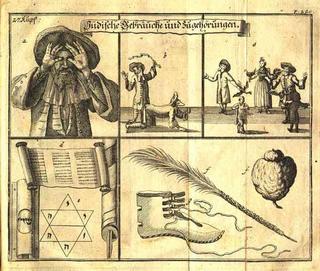It's probably rapidly going to become a hashed-to-death cliche to dissect the Lakewood
internet ban. But clearly I'm not going to let this by without commenting.
Obviously this is draconian. But rather than just being prescriptive, let's be descriptive. Firstly, no one should deny that the internet truly is a threat to traditional ways of life. It is. Secondly, the internet is not all amazon.com and online bill paying and [insert the newspaper of your choice]. It's got dark corners, probably most of it is dark.
The truth is that if Lakewood will continue to be Lakewood (and if Lancaster, PA will continue to be Lancaster, PA or if Riyadh will continue to be Riyadh) then it probably can do so only without widespread internet use. However, it's difficult to believe that this ban is being promulgated from a position of strength. I don't pretend to have some kind of proactive formula for them that will work, but it's hard to see how the reactionary approach they've taken will really succeed in the long run. The language of the ban clearly recognizes the unescapable fact: many people really need internet access. And many people will have it. Even if having internet access requires rabbinic approval, I can assure you that they will be unable to monitor people's private use.
On the other hand, maybe this ban is really meant only as a da'as Torah litmus test, a kind of periodic status report on the haredi world of Lakewood, NJ by the powers that be. Or maybe its only meant for the taye'reh temimusdike yungerman and especially their children and families, the people who will take the ban very seriously but who otherwise might have innocently slipped that free AOL disc into their computer and double-clicked setup.exe.


 ). Seeing the name of Hashem (yes, "the name of the name, I know) on line 18--wow! I don't know if I'd describe the feeling as a religious experience per se, but it made me swell with satisfaction. I can't even put into words how moving it was to read that word (and Yisrael, mentioned six times) in
). Seeing the name of Hashem (yes, "the name of the name, I know) on line 18--wow! I don't know if I'd describe the feeling as a religious experience per se, but it made me swell with satisfaction. I can't even put into words how moving it was to read that word (and Yisrael, mentioned six times) in 



